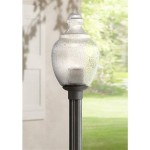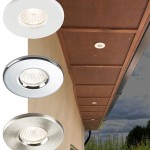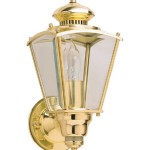Essential Aspects of Outdoor Lighting System Design
Creating an effective outdoor lighting system requires careful planning and attention to several key aspects. Whether illuminating a backyard, garden, or commercial property, a well-designed lighting system enhances safety, security, and aesthetics.
1. Purpose and Function
Determine the primary purpose of the outdoor lighting, such as security, ambiance, or path illumination. Security lighting deters intruders by illuminating potential entry points, while ambiance lighting creates a welcoming atmosphere for gatherings or relaxation. Path lighting enhances visibility and safety along walkways and stairs.
2. Site Assessment and Zoning
Conduct a thorough site assessment to map out the area and identify potential obstacles, such as trees, structures, and obstacles. Divide the site into zones based on the desired lighting levels and purposes. This zoning ensures even distribution of light and minimizes light pollution.
3. Light Source Selection
Choose suitable light sources based on factors such as energy efficiency, lifespan, output, and color temperature. Consider LEDs for energy efficiency and durability, or traditional incandescent or halogen bulbs for ambiance. Determine the appropriate color temperature to create the desired atmosphere warm light (2700-3000K) for a cozy ambiance, or cool light (4000-5000K) for enhanced visibility.
4. Fixture Selection and Placement
Select lighting fixtures that complement the architectural style of the property and resist outdoor conditions. Consider wall-mounted lanterns for exterior walls, bollards for path lighting, and spotlights for accent lighting. Place fixtures strategically to ensure optimal light distribution and minimize glare. Position lights to highlight key features, create depth, and enhance the overall aesthetics.
5. Electrical Design and Wiring
Ensure proper electrical design and wiring to power the lighting system safely and efficiently. Determine the required voltage, amperage, and wiring gauge based on the load. Use weatherproof fixtures and wiring materials, and consult with a licensed electrician for electrical installation and maintenance.
6. Controls and Automation
Incorporate controls to manage the lighting system, such as timers, motion sensors, and photocells. Timers automate lighting schedules, while motion sensors activate lights upon movement, enhancing security and convenience. Photocells adjust lighting levels based on ambient light, ensuring lights turn on at dusk and off at dawn. Wireless controls offer remote access and customization options.
Conclusion
By considering these essential aspects, you can design an outdoor lighting system that meets your specific needs and enhances the beauty, safety, and functionality of your exterior space. A well-planned lighting system not only extends the enjoyment of outdoor areas but also contributes to the overall property value.

Designing A Landscape Lighting System Ideas Advice Lamps Plus

10 Best Outdoor Lighting Ideas Landscape Design Secrets A Piece Of Rainbow

Light Up Your Outdoor Space With A Landscape Lighting System Atlanta Home Improvement

10 Best Outdoor Lighting Ideas Landscape Design Secrets A Piece Of Rainbow

19 Stylish Outdoor Lighting Ideas The Best Patio

Ways To Save Money On Your Outdoor Lighting System

Transform Your Backyard With An Outdoor Lighting System Blog

10 Best Outdoor Lighting Ideas Landscape Design Secrets A Piece Of Rainbow

Sm Landscape Lighting New Jersey

Professional Outdoor Lighting Techniques Limelight
Related Posts







